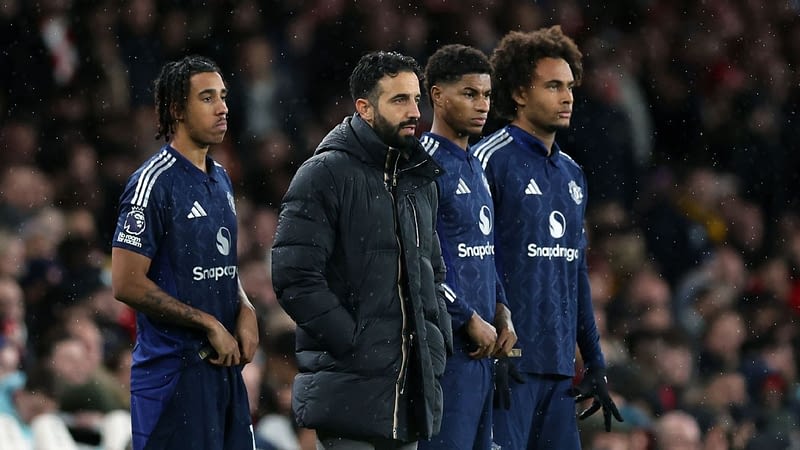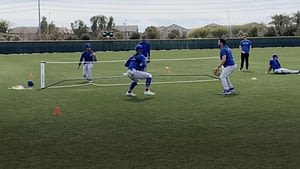Ruben Amorim Reflects on First Manchester United Loss, Cites Player ‘Time Limits’
It was a tough day at the office for Ruben Amorim as he suffered his first defeat as Manchester United manager in a 2-0 loss to Arsenal at the Emirates Stadium. The match, which saw United concede two second-half goals from corners, highlighted some glaring issues for the Red Devils, particularly in their defensive organization. For Amorim, the defeat wasn’t just about tactics—it was also about managing a squad riddled with injuries and fitness concerns.
Second-half strikes from Jurriën Timber and William Saliba, both coming from set pieces, sealed the win for Arsenal. The result not only ended Amorim’s unbeaten league run, which stretched back over a year during his time at Sporting CP, but also exposed United’s vulnerability in defending corners—a point that pundits like Stewart Robson were quick to criticize.
Injuries and Fitness Woes Continue to Haunt United
Amorim didn’t shy away from addressing the challenges he’s facing with his squad. Key players like Harry Maguire, Tyrell Malacia, and Mason Mount were all on limited minutes as they continue their recovery from injuries. Meanwhile, summer signing Leny Yoro made his first appearance for the club after a long-term foot injury.
“It’s not because I like to change all the time, but we have to have all the squad fit,” Amorim explained. “So for example, Harry Maguire has a time limit, Tyrell Malacia has a time limit, Mason Mount has a time limit, Leny Yoro has a real time limit, so we have to manage within games, different methodology, different way of playing, more metres to press.”
Amorim emphasized the importance of careful player management, saying, “Tomorrow we have to assess, and the guys that are a little bit of risk to some injury will not play. We have to have everybody to work, to play, and to improve the squad.”
Positives Amid the Setback
Despite the loss, Amorim remained optimistic about certain aspects of his team’s performance. “I make the evaluation of the game regardless of the result,” he said. “Like I said, after the 4-0 [win against Everton] you can take positive things, but we have to improve, and you already knew that.”
He pointed to moments in the first half where United managed to unsettle Arsenal. “You can feel it in the stadium, especially in the end of the first half—you can feel they were not comfortable,” Amorim noted. “You see a goal and then the momentum changes, and it’s really hard for us to take full control of the game, but we try it.”
Luke Shaw’s Road to Recovery
One of the ongoing concerns for United is the fitness of Luke Shaw. The England defender recently suffered another injury setback after spending five months sidelined with a calf injury. Amorim was quick to praise Shaw’s dedication to his recovery process.
“What I can say since I arrived, I see him in the medical department working a lot in the gym, working a lot on the pitch,” Amorim said. “We control the load during the games, during the trainings. He was losing weight, so he was doing everything.”
Amorim made it clear that Shaw remains a vital part of both Manchester United and the England national team. “If he continues to do that behaviour, he’s a top, top player, and we need him. No matter how long he will need, I will be with him, we will help him to return. Not just Manchester United, but your national team needs a guy like Luke Shaw, so we are here to help him.”
Key Takeaways from the Match
- Manchester United conceded two goals from corners, highlighting defensive frailties.
- Injuries and fitness concerns continue to limit Amorim’s squad selections.
- Despite the loss, Amorim found positives in United’s first-half performance.
- Luke Shaw’s recovery remains a priority for both club and country.
As Manchester United look to bounce back from this defeat, the focus will undoubtedly be on improving their defensive organization and getting key players back to full fitness. For Amorim, the journey is just beginning, and while the loss to Arsenal stings, it’s clear he’s committed to building a stronger, more resilient squad.
Originally Written by: Mark Ogden





















